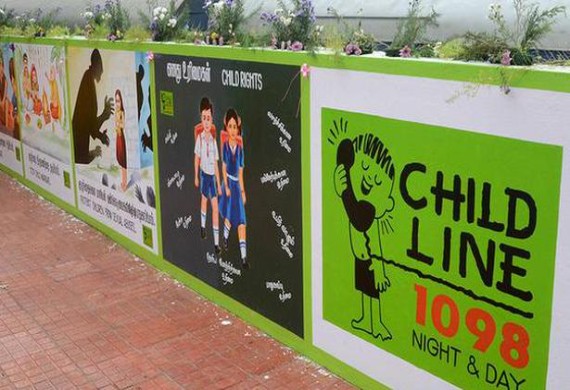
Government to Collaborate with the Private Sector & Volunteer Organisations to Protect Children
By: WE Staff | Friday, 8 April 2022
For its initiative to protect vulnerable children, such as those who have been abandoned or who have gone missing, the government intends to work with the private sector as well as volunteer groups.
The Ministry of Women and Child Development released a draft of the Mission Vatsalaya Scheme guidelines to states and union territories on Wednesday, asking for feedback by April 18, 2022. Mission Vatsalaya is simply a rebranding of the Child Protection Services program, which also covers child welfare services. Mission Vatsalaya was authorized by the Union Cabinet in January 2022, and the draft guidelines are the first document to make the government's intentions for the plan public.
“To encourage public participation, develop synergy in efforts and utilize the resources available for success of the mission, the civil society, people’s groups and various volunteering organizations can be encouraged to participate under Mission Vatsalya in a systematic and planned manner,” say the draft guidelines.
According to the text, these might include government-sponsored organisations such as Bharat Scout and Guide, NSS Volunteers, Nehru Yuva Kendras, and other NGOs and Self-Help Groups.
The Ministry has also proposed a Vatsalaya portal, which will allow volunteers to register so that state and district governments can hire them to carry out various projects.
The statement explains why the move is being made: "The model will provide meaningful public participation in child development, which will promote a sense of ownership in nation building and develop the culture of belongingness."
Children in need of care and protection, such as those who are abandoned, orphaned, or missing; youngsters in conflict with the law or juvenile criminals; and other vulnerable children are all served by child protection agencies.
From the 2009-10 fiscal year onwards, the plan will be implemented. Institutional services are provided through child care institutions (CCI), and family-based non-institutional care is provided through sponsorship, foster care, and adoption. It also supports an after-care programme for children who turn 18 at CCIs, as well as an emergency outreach service for children through Childline or the national helpline 1098.
The government also aims to "integrate" the hugely successful Childline with the Ministry of Home Affairs' helpline 112, which provides emergency services for medical emergencies, women's safety, and fire, according to the draught rules - a move that has child rights groups very concerned.
Last year, Ram Mohan Mishra, the then-Secretary of the Ministry of Women and Child Development, stated that the helpline's administrative administration would be transferred from his ministry to the Ministry of Home Affairs. This was done, he claimed, to "preserve data sensitivity" and to ensure that the Police or the State is the first point of contact for children in trouble.
Childline is a non-profit organisation that receives funds from the Ministry of Women and Children Development to run the hotline.
“The police should not be the first responder for complaints from children. This will take away the space children have to share and open up. The moment you attach a police helpline the reporting will go down and as it is we suffer from poor reporting in this country. This is one of the biggest concerns we have at the moment,” said Bharti Ali, co-founder, HAQ: Centre for Child Rights.






